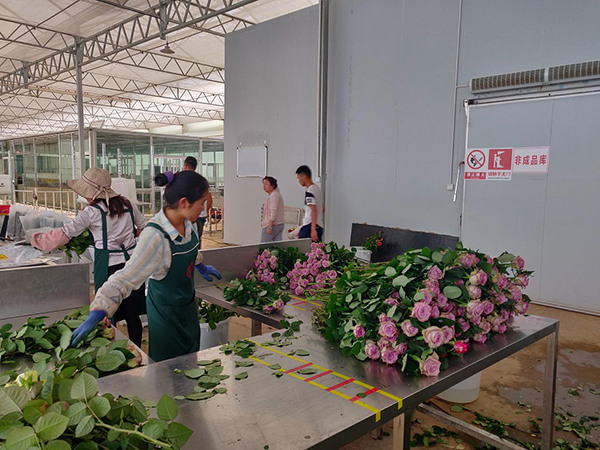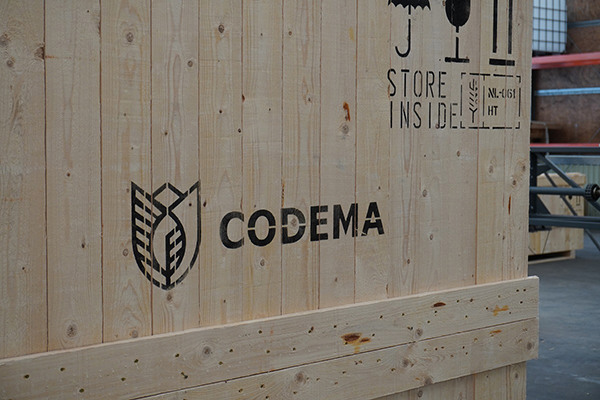Spring is blooming and the economy in China is starting again after Covid-19. Due to the impact of the virus, all walks of life have ushered in unprecedented challenges. During the two-month stagnation in China, many companies in the industry and our own business have suffered a lot, but everyone has a lot of power. We believe in supporting each other wherever possible to overcome difficult times. Our colleagues at our office in Beijing, China give us an update on how daily life in China starts again. Hopefully we will soon be able in Europe to do the same too.
Schools still closed, but factories are re-opened
The schools in China has been closed for more than two months now. The children receive a daily explanation video from their tutor and then work on the main subjects. Probably, the schools will be opened soon. Most companies are back to work and also factories are running again. People at the office are still wearing masks and still do daily temperature checks. Shifts are used to limit the number of working people at the same time.

Sharp decline in demand
Growers have never stopped working, only the demand has declined a lot. Vegetable growers are doing well and the transport is returning to an acceptable state again. But, as we now also see in the Netherlands, plant growers and flower growers in particular are seeing a sharp decline in demand.
Response strategies of Chinese growers during COVID-19
After the outbreak, CODEMA has been in close contact with our Chinese customers and friend companies for in-depth communication. We discuss the impact of the epidemic on various companies and their response strategies.

Opening up online channels
Lanzhou New District Agricultural Investment Group explains what they did during the outbreak. “We called for resumption of work on February 3. All our staff wears masks, we disinfect our office area on a daily basis and we measure the temperature of all visitors. Due to changes in the epidemic situation, we have opened up online sales channels and sell new flowers and plants on WeChat online. Currently, B2B and e-commerce are combined to sell online and offline at the same time.’’
Online will gradually become a habit
Shanghai Hezhong Economic and Trade Development Co., Ltd. explains what they did during the outbreak: “Our sales channels are online and offline. During the epidemic, logistics opportunities stagnated, leaving only express delivery, all flower markets were almost closed, and offline sales were zero. Online sales were also almost zero because there is no logistics to support delivery. Everyone is at home and has been communicating with the outside world through the Internet. Online will gradually become a habit. So we decided to strengthen our online business, which can be B2B or B2C, which can be operated directly or through other platforms. In the face of sudden outbreaks, we try our best not to be afraid of danger and plan for the future.”

More efficient logistics
Xiamen Aiken Horticulture Co., Ltd. explains what they did during the outbreak: “The epidemic affects logistics and limited express delivery. Projects originally planned by customers were postponed or even cancelled, which resulted in the backlog loss of the pre-produced crops. Our plant was closed, group activities were cancelled, and holiday homes caused a plummeting demand for flowers. The sales rhythm of seedlings was disrupted, and orders, transactions and shipments were affected. The new variety exhibition originally planned to be held in Chengdu, Sichuan, in April 2020 has also been cancelled. In the end, the epidemic has made us more professional, better aware of safety and has made our logistics more efficient.”
Accelerated change of sales channels
The epidemic has accelerated the change of most company's sales channels, changing from former models with dealers to directly selling to flowershops and consumers, and working together through multiple channels. At the same time, the social platforms are used to increase company's visibility and exposure. The epidemic also allowed to have more and more flexible sales channels, a better understanding of the end consumer's demands for products, and it provided a rich experience for future transformation.
The future of the industry
Looking forward to the future, the companies that can survive this epidemic will eventually usher in more robust growth, their brand concept will be more deeply rooted in the hearts of the people, and the most brutal natural law of survival and elimination will occur in all walks of life. At that time, the flower industry will usher in a more regulated market, more standardized production and cultivation, and more diverse sales and distribution channels.
Closer relationship
CODEMA actively responded and cooperated with the Chinese government's calls during the epidemic, and maintained smooth communication with companies in the industry. Our company believes that through the special period of the epidemic, the relationship between enterprises will be closer.
For more information: Codema Systems Group
Codema Systems Group
Oosteindsepad 8
2661 EP Bergschenhoek
The Netherlands
+31105212755
info@codemasystemsgroup.com
www.codemasystemsgroup.com
